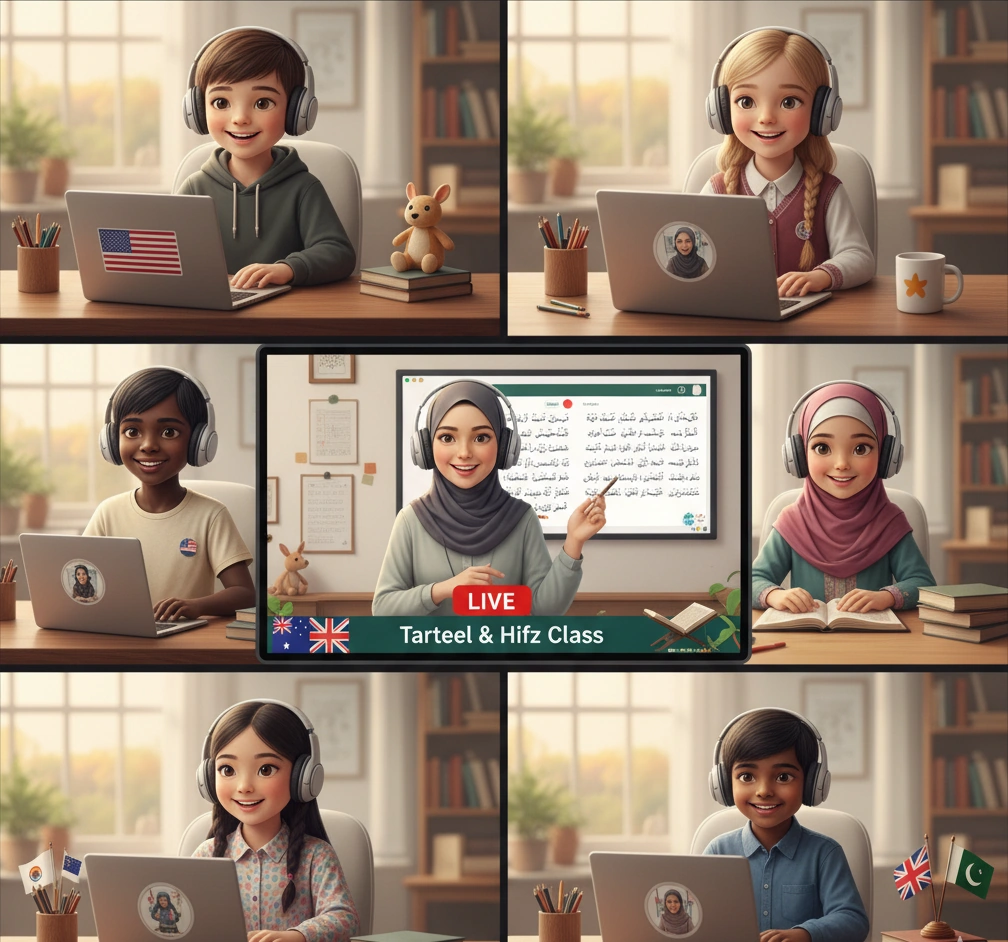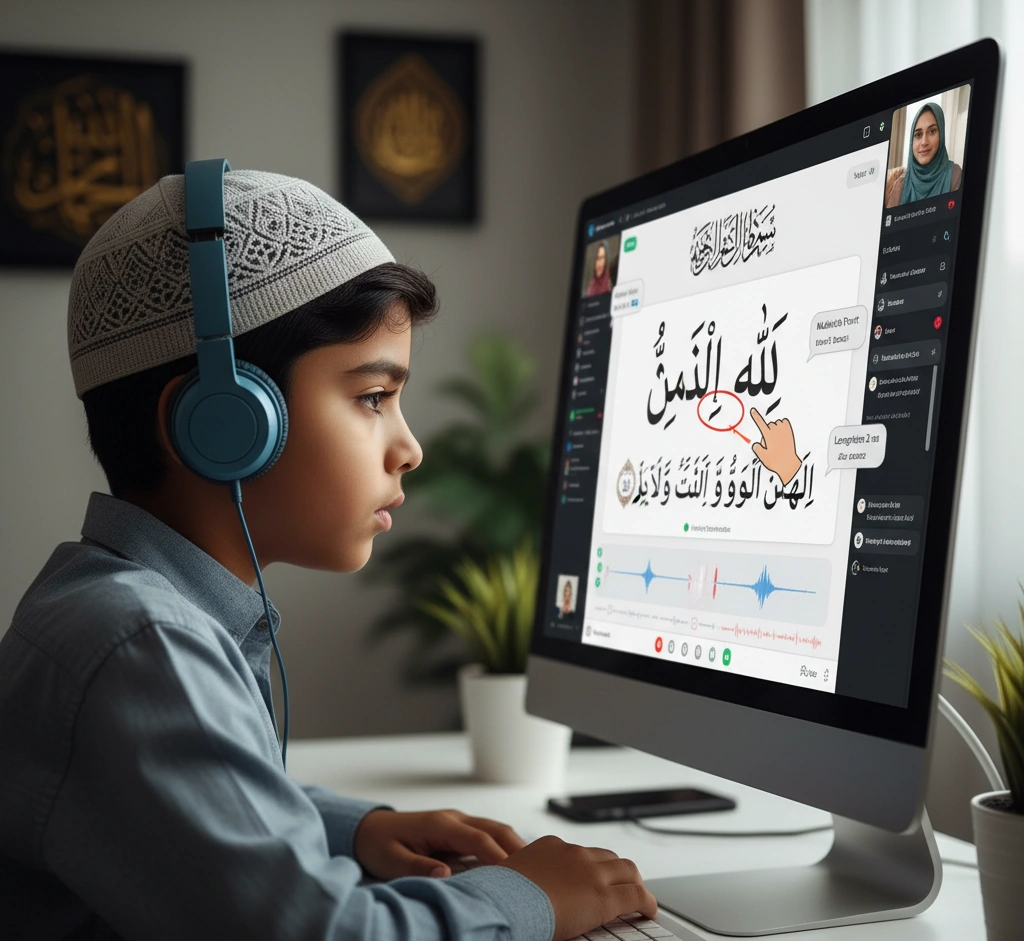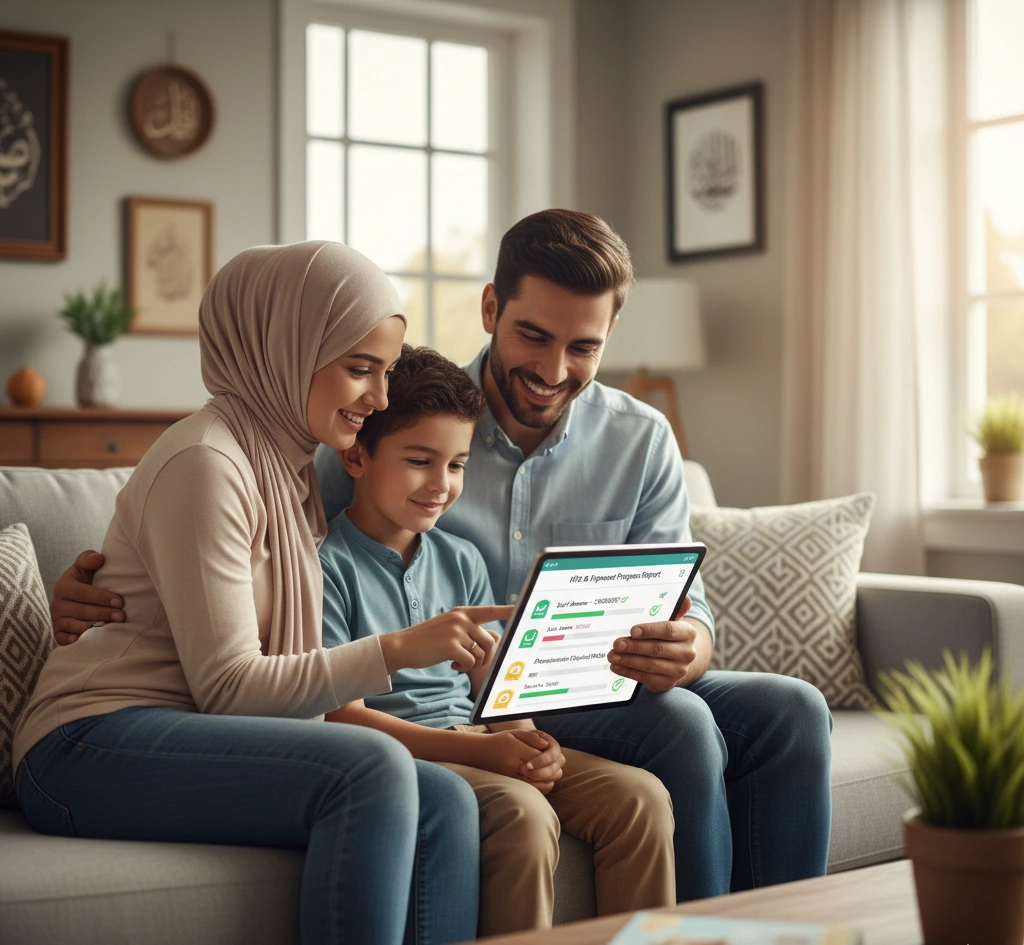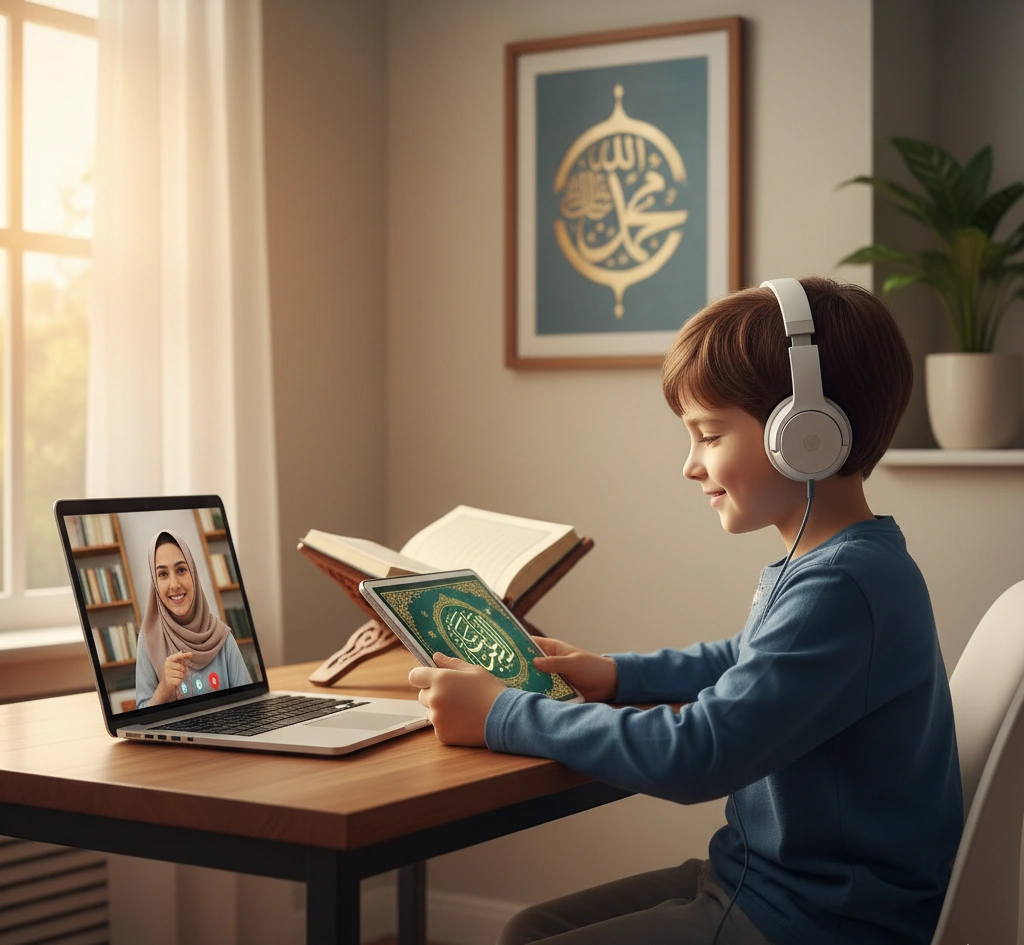Introduction
Kids online Quran classes have ceased to be a novelty to mainstream. They include highly trained instructors, organized programs, and technology to impart Tajweed, memorization and Quran interpretation. US, UK, Australia and Pakistan Parents are now opting to use virtual lessons due to their flexibility, safety and quality. This paper describes the operation of the classes, the advantages, the actual hardship, and the process of selecting an appropriate program to your child.
The shift to virtual Islamic education

A Sydney family is able to employ a certified Lahore teacher. Platforms currently provide one-to-one lessons, classes in small groups, and recorded reinforcements. The latter is diverse enough to accommodate varying learning styles and times. In case of second-generation Muslim families in the UK and the US, online classes provide culturally-conscious tutors who teach both English and Arabic.
Basic child and family benefits
Flexibility and access
Parents schedule lessons in accordance with school and extracurricular. Children can access professional tutors without considering the availability within the locality. This is critical in smaller Muslim communities across Australia or remote US towns.
Individually guided learning and learning tracking
Individual lessons allow teachers to customize learning. Progress is monitored on the online platforms: recitals recordings, Tajweed correction notes, memorization record. Those metrics help parents and teachers make focused plans.
Qualified tutors and curriculum variety
A lot of online tutors demand background checks and certification of tutors. You will have an option of tutors specializing in Tajweed, Hifz or Quranic Arabic. This specialization facilitates novices and experienced learners.
Safe and comfortable environment
Home based learning eliminates the stress of traveling and offers supervision to the parents during lessons. This is to the benefit of young children or families that are new to Islam, as it opens up obstacles to regular study.
Multimedia and engagement tools
Activities are kept busy, as there are the interactive white board, text notes, plays, and games. Illustrations are also helpful in interpreting when learning how to recite, to the non-Arabic speakers.
How platforms handle Tajweed and Hifz

Quality online programs separate technical skill training from meaning. Tajweed modules focus on articulation, rules, and live correction by teachers. Hifz tracks memorization in small segments with spaced revision. Good platforms pair live instruction with recorded practice and revision schedules.
Addressing common concerns
Attention span and screen time
Short, frequent lessons (20–30 minutes for young children) preserve focus. Combine live instruction with offline practice such as listening and family recitation.
Authenticity and teacher qualification
Request certifications, sample lessons, and references. Ask platforms about teacher training in Tajweed and child pedagogy.
Cultural and linguistic fit
Choose tutors who understand your home language and cultural context. Many providers list tutor bios, available languages, and experience with diaspora families.
Choosing the right program (checklist)
- Trial lesson: required before committing.
- Tutor validation: validation, background check, video demonstrations.
- Harmoniousness of the curriculum: Tajweed, recitation, memorization, tafsir (age-appropriate).
- Type of classes: small group / one-to-one.
- Progress tracking: regular reports and recordings.
- Scheduling flexibility: time zones and rescheduling policy.
- Parent involvement: guidance for practice between lessons.
- Price transparency: hourly rate, package deals, trial policies.
Real results and case uses (short examples)
- A UK family used daily 20-minute lessons to help a 6-year-old master basic Tajweed within three months.
- An Australian student completed one juz of Hifz with a tutor who provided spaced review and audio drills.
- Parents in Pakistan used bilingual tutors to balance recitation skill and English understanding for diaspora children.
The future: AI and blended learning
AI can assist with pronunciation scoring and personalized revision plans. Expect more mobile apps that integrate teacher feedback with automated practice. Blended models will combine brief in-person camps with regular online lessons to strengthen community ties.
Conclusion

Online Quran classes for kids offer access, structure, and measurable progress. When chosen carefully they preserve authenticity and adapt to family life in the US, UK, Australia, and Pakistan. Prioritize verified tutors, short regular lessons for young children, and systems that report progress. The result is consistent Quran learning without geographic or scheduling barriers.
FAQ ( What parents mostly ask )
A: Yes. The small frequent sessions and individual tutoring ensure the interest and establishment of Tajweed and memorization.
A: Yes. Tutors offer meaning and tafsir in an English and other languages to facilitate an understanding of the text along with recitation.
A: Certifications, sample lessons, references, and the background checks that the platform does.
A: For ages 4-7, 15-30 minutes. For ages 8-12, 30-45 minutes. Adjust to attention and development.

